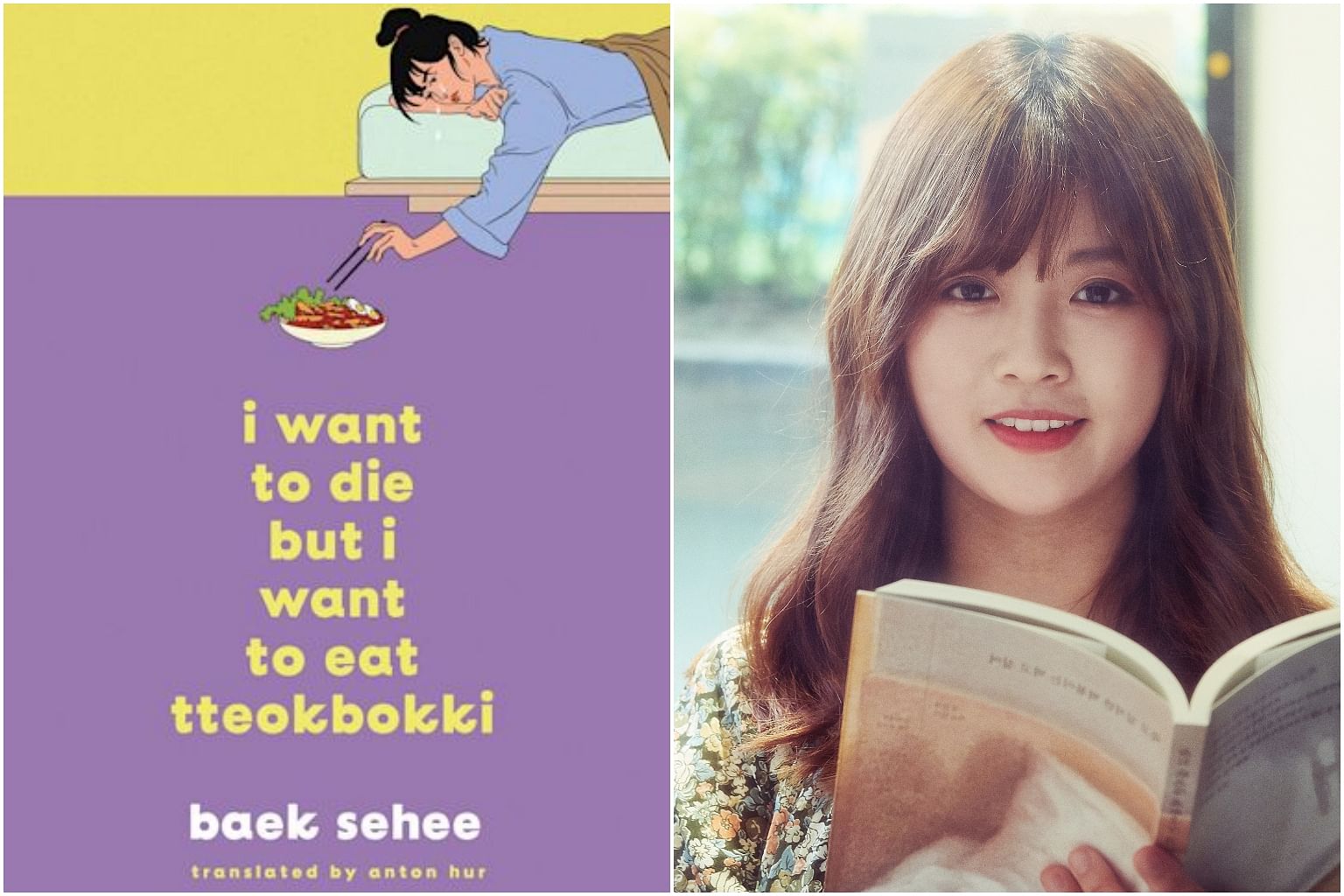'Revealing what I want to hide allows me to break free,' says Baek Se-hee, author of therapy memoir
Sign up now: Get ST's newsletters delivered to your inbox

The book shines a light on Baek's struggles with dysthymia, or persistent depressive disorder.
PHOTOS: BLOOMSBURY
Follow topic:
SINGAPORE - Several years ago, when Baek Se-hee was a young marketing professional in South Korea, she decided to see a psychiatrist.
"I wasn't deathly depressed, but I wasn't happy either, floating instead in some feeling between the two," she would later write in her best-selling 2018 memoir I Want To Die But I Want To Eat Tteokbokki.
The book, a record of those conversations with her psychiatrist, shines a light on Baek's struggles with dysthymia, or persistent depressive disorder. She feels low, is racked by self-doubt and finds it hard to form deep relationships, all the while projecting an image of a competent social media director of a publishing house.
The memoir is a hit. It has been translated from Korean into at least eight languages and recommended by boy band BTS' leader Kim Nam-joon, who is also known as RM.
An English translation by Anton Hur came out in June.
Baek, 32, tells The Sunday Times in an e-mail interview that tteokbokki, a type of rice cake dish, is her favourite food. "I was thinking of planning my own death, but I got hungry and ate tteokbokki. I felt guilty thinking that I could still eat tteokbokki when I wanted to die, yet it felt like such a natural thing to do," she says.
I Want To Die But I Want To Eat Tteokbokki captures existential ennui in all its messy, human complexity. "I wonder about others like me, who seem totally fine on the outside but are rotting on the inside, where the rot is this vague state of being not fine and not devastated at the same time," she writes in the book.
It is not surprising that the memoir has resonated so strongly with people. Mental health issues are prevalent, not least in South Korea, which has one of the highest suicide rates in the world.
Baek says in her e-mail: "South Korea is a competitive society. It's easy to blame people who are a little slow. All mistakes are blamed on the individual: 'It's because you're weak. It's because you're ugly.'
"If everything feels like my fault, I'd feel like I'm standing on the edge of a cliff. And at some point, I would fall off. 'It's all my fault, so I should disappear', right?"
Attitudes towards mental health have changed a lot in recent years, although there is still a long way to go.
"I see a lot of people taking medicine or receiving counselling now, but prejudice remains. Especially when you say you're hospitalised, people will think it's a big issue," she says. "Whether to receive therapy or get admitted to hospital is a personal choice. It's an effort to not inflict hurt on anyone."
Baek, who is still going for therapy, says the words she finds most comforting are "it's not your fault, it's an illness". She adds: "What I want to say to my 22-year-old self is, don't hate yourself too much."
These days, she gives lectures on depression and writes. Her dream, she says, is "to be loved".
Her latest project is an essay about "feeling jealous of someone, or crying over nothing".
She says: "It's something that reveals my pathetic inner mind, but I feel that revealing what I want to hide allows me to break free."
I Want To Die But I Want To Eat Tteokbokki ($23.50) is available at major bookstores. Buy here or borrow here
Helplines
• National Care Hotline:
1800-202-6868 (8am - 8pm)
Mental well-being
• Institute of Mental Health’s Mental Health Helpline:
6389-2222 (24 hours)
• Samaritans of Singapore:
1800-221-4444 (24 hours) /1-767 (24 hours)
• Singapore Association for Mental Health:
1800-283-7019
• Silver Ribbon Singapore:
6386-1928
• Tinkle Friend:
1800-274-4788 and www.tinklefriend.sg
• Community Health Assessment Team:
6493-6500/1 and www.chat.mentalhealth.sg
Counselling
• TOUCHline (Counselling):
1800-377-2252
• TOUCH Care Line (for seniors, caregivers):
6804-6555
• Care Corner Counselling Centre:
1800-353-5800
Online resources
This article contains affiliate links. If you buy through these links, we may earn a small commission.

